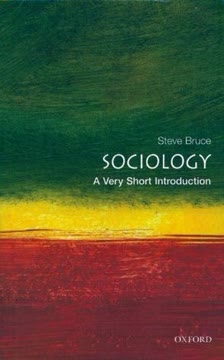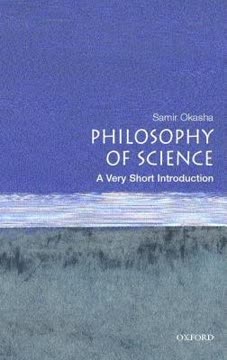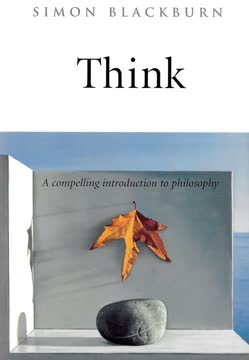Key Takeaways
1. Marx's philosophy emerged from a critique of Hegel and capitalism
Marx seized on this idea of bringing Hegel down to earth, and he too began using Hegel's methods to attack the present material and economic condition of human beings.
Hegelian roots. Marx's philosophical journey began with a critique of Hegel's idealism. While Hegel saw history as the progress of Mind or Spirit, Marx inverted this concept, arguing that material conditions and economic relations shape human consciousness and society. This materialist approach became the foundation of Marx's analysis of capitalism and his vision for social change.
Critique of capitalism. Marx's early encounters with socialist ideas in Paris and his observations of industrial conditions in England led him to develop a critical view of capitalism. He saw it as a system that, while productive, also created profound inequality and alienation. This critique would form the core of his lifelong work, culminating in his magnum opus, "Capital."
2. The materialist conception of history: Economic forces shape society
The mode of production of material life conditions the social, political, and intellectual life process in general. It is not the consciousness of men that determines their being, but, on the contrary, their social being that determines their consciousness.
Economic base and superstructure. Marx argued that the economic system of a society (the "base") determines its social, political, and ideological structures (the "superstructure"). This means that laws, politics, culture, and even religion are shaped by the underlying economic conditions and relations of production.
Historical materialism. According to Marx, history progresses through different modes of production (e.g., feudalism, capitalism, socialism) driven by contradictions between the forces of production (technology, labor) and the relations of production (property ownership, class structure). These contradictions lead to class conflicts and eventually to social revolutions that transform society.
Modes of production:
- Primitive communism
- Slave society
- Feudalism
- Capitalism
- Socialism/Communism
3. Alienation: Capitalism estranges workers from their labor and humanity
The worker puts his life into the object and this means that it no longer belongs to him but to the object … The externalization of the worker in his product implies not only that his labour becomes an object, an exterior existence but also that it exists outside him, independent and alien, and becomes a self-sufficient power opposite him, that the life that he has lent to the object affronts him, hostile and alien.
Four types of alienation. Marx identified four ways in which capitalism alienates workers:
- From the product of their labor
- From the act of production
- From their species-being (human nature)
- From other workers
Dehumanizing effects. Under capitalism, Marx argued, work becomes an external, coerced activity rather than a fulfilling expression of human creativity. Workers are reduced to commodities, their labor bought and sold on the market. This alienation extends beyond the workplace, affecting all aspects of human life and relationships.
4. Surplus value: The exploitation at the heart of capitalism
The fact that the worker obtains only the exchange-value, rather than the use-value, of his labour, means that in order to earn enough to support himself he has to work a full day—say, twelve hours—whereas his labour produces the use-values of the necessary food, clothing, shelter, and so on in, say, six hours.
Labor theory of value. Marx built on classical economics to argue that the value of a commodity is determined by the socially necessary labor time required to produce it. However, he went further to expose what he saw as the fundamental exploitation in capitalism.
Extraction of surplus value. Capitalists, Marx argued, pay workers only for their labor power (ability to work) but profit from the full value their labor creates. The difference between what workers are paid and the value they create is surplus value, which is appropriated by the capitalist as profit. This exploitation is the source of capital accumulation and class inequality.
Example:
- Worker's daily wage: $100
- Value created in a day: $200
- Surplus value extracted: $100
5. Class struggle: The driving force of historical change
The history of all hitherto existing society is the history of class struggles.
Binary class structure. Marx saw society as fundamentally divided into two main classes:
- The bourgeoisie: owners of the means of production
- The proletariat: workers who sell their labor
Historical dialectic. Class struggle, according to Marx, is the engine of historical change. Each mode of production creates its own class antagonisms, which eventually lead to revolution and the establishment of a new social order.
Proletarian revolution. Marx predicted that the inherent contradictions of capitalism would lead to its downfall. The proletariat, as the universal class with "nothing to lose but their chains," would overthrow the bourgeoisie and establish a socialist society, eventually leading to communism.
6. Communism: Marx's vision of a classless, stateless society
Communism … is the genuine solution of the antagonism between man and nature and between man and man. It is the true solution of the struggle between existence and essence, between objectification and self-affirmation, between freedom and necessity, between individual and species.
Abolition of private property. The core of Marx's communist vision was the collective ownership of the means of production, eliminating the basis for class exploitation.
Transformation of human nature. Marx believed that communism would not only change economic relations but also human consciousness. Without the alienation and competition of capitalism, people would be free to develop their full potential as social beings.
Stateless society. In the final stage of communism, Marx envisioned the "withering away" of the state, as class antagonisms disappear and society can be organized on the principle "from each according to his ability, to each according to his needs."
7. Marx's enduring relevance: Inequality, globalization, and environmental crisis
The need of a constantly expanding market for its products chases the bourgeoisie over the entire surface of the globe. It must nestle everywhere, settle everywhere, establish connexions everywhere.
Persistent inequality. While Marx's predictions of immiseration and revolution have not come to pass, his insights into capitalism's tendency to concentrate wealth remain relevant. The work of economists like Thomas Piketty has brought renewed attention to rising inequality.
Globalization. Marx's analysis of capitalism's expansionist nature anticipated many aspects of modern globalization, including the creation of a world market and the constant revolutionizing of production.
Environmental crisis. Some contemporary thinkers draw on Marx's critique of capitalism's drive for endless growth to address environmental challenges, particularly climate change. "Ecosocialists" argue that overcoming capitalism is necessary to achieve ecological sustainability.
Areas of continued relevance:
- Critique of economic inequality
- Analysis of economic crises
- Insights into the dynamics of globalization
- Basis for environmental critiques of capitalism
Last updated:
FAQ
What's "Marx: A Very Short Introduction" about?
- Overview: The book provides a concise introduction to the life, ideas, and influence of Karl Marx, written by philosopher Peter Singer.
- Purpose: It aims to make Marx's complex theories accessible to general readers, offering a clear explanation of his central ideas.
- Content: The book covers Marx's biography, his philosophical development, his economic theories, and the impact of his ideas on history and contemporary thought.
- Series Context: It is part of the "Very Short Introductions" series, which offers brief overviews of a wide range of subjects.
Why should I read "Marx: A Very Short Introduction"?
- Understanding Marx: The book provides a foundational understanding of Marx's ideas, which have significantly influenced political, economic, and social thought.
- Relevance: Marx's theories continue to be relevant in discussions about capitalism, socialism, and economic inequality.
- Clarity: Peter Singer presents Marx's complex ideas in a clear and accessible manner, making it suitable for readers new to Marxist theory.
- Contextual Insight: The book places Marx's ideas within the historical and philosophical context, enhancing comprehension of his impact.
What are the key takeaways of "Marx: A Very Short Introduction"?
- Materialist Conception of History: Marx's theory that economic forces drive historical change and shape society's structure.
- Alienation: The concept that under capitalism, workers are alienated from the products of their labor, leading to a loss of freedom and self-realization.
- Surplus Value: Marx's economic theory that capitalists profit by extracting surplus value from workers' labor.
- Revolution and Communism: Marx's belief in the eventual overthrow of capitalism by the proletariat, leading to a classless, communist society.
What is the materialist conception of history according to Marx?
- Economic Base: Marx argues that the economic structure of society (the base) determines its legal, political, and ideological superstructure.
- Productive Forces: The development of productive forces (technology, labor) drives historical change and societal evolution.
- Class Struggle: History is characterized by class struggles, which arise from conflicts between different economic classes.
- Inevitable Change: Marx believed that these economic forces would inevitably lead to the collapse of capitalism and the rise of communism.
How does Marx define alienation in "Marx: A Very Short Introduction"?
- Worker's Alienation: Workers are alienated from the products of their labor, which are owned and controlled by capitalists.
- Loss of Self: This alienation leads to a loss of self and a disconnection from one's own humanity and creativity.
- Social Relations: Alienation extends to social relations, where individuals see each other as competitors rather than collaborators.
- Resolution: Marx believed that communism would resolve alienation by abolishing private property and enabling collective ownership.
What is surplus value in Marx's economic theory?
- Definition: Surplus value is the difference between the value produced by labor and the wages paid to the laborer.
- Capitalist Profit: Capitalists extract surplus value from workers, which is the source of their profit.
- Labor Exploitation: This process is seen as exploitation, as workers do not receive the full value of their labor.
- Economic Critique: Surplus value is central to Marx's critique of capitalism, highlighting inherent inequalities in the system.
How does Peter Singer address Marx's relevance today?
- Contemporary Issues: Singer discusses how Marx's ideas remain relevant in addressing modern issues like economic inequality and globalization.
- Critique of Capitalism: Marx's critique of capitalism's tendency to concentrate wealth and power is still pertinent.
- Environmental Concerns: The book touches on how Marxist ideas can inform discussions on environmental sustainability and capitalism's impact on nature.
- Philosophical Insights: Marx's philosophical insights into human nature and freedom continue to influence contemporary thought.
What are the best quotes from "Marx: A Very Short Introduction" and what do they mean?
- "The weapon of criticism cannot, of course, supplant the criticism of weapons; material force must be overthrown by material force." This quote highlights Marx's belief in the necessity of revolutionary action to achieve societal change.
- "The philosophers have only interpreted the world in various ways; the point is, to change it." Engraved on Marx's tombstone, this quote emphasizes the importance of practical action over mere theoretical interpretation.
- "Communism is the riddle of history solved." This reflects Marx's view that communism would resolve the contradictions and conflicts inherent in capitalist societies.
How does Peter Singer explain Marx's concept of freedom?
- Beyond Liberal Freedom: Marx's concept of freedom goes beyond the liberal idea of non-interference, focusing on collective control over social and economic conditions.
- True Freedom: True freedom, for Marx, involves the ability to shape one's own life and society, free from economic constraints.
- Collective Action: Marx believed that collective action and planning are necessary to achieve true freedom for all.
- Critique of Capitalism: Capitalism, according to Marx, limits freedom by subjecting individuals to the impersonal forces of the market.
What role does the proletariat play in Marx's theory?
- Revolutionary Class: The proletariat, or working class, is seen as the revolutionary class that will overthrow capitalism.
- Universal Sufferings: Marx believed the proletariat's universal sufferings would drive them to seek a complete transformation of society.
- Agent of Change: The proletariat is the agent of change, realizing the potential for human freedom and ending alienation.
- Philosophical Weapon: Marx saw the proletariat as the material force that would realize the philosophical ideals of freedom and equality.
How does "Marx: A Very Short Introduction" address Marx's predictions about capitalism?
- Predictions: Marx predicted that capitalism would lead to increasing inequality, falling rates of profit, and eventual collapse.
- Critique of Predictions: Singer discusses how many of Marx's predictions have not come to pass, particularly in industrialized nations.
- Relevance of Critique: Despite inaccuracies, Marx's critique of capitalism's tendencies remains relevant in discussions of economic inequality.
- Philosophical Legacy: Marx's philosophical insights continue to influence debates on freedom, human nature, and societal change.
How does Peter Singer view Marx's impact on modern thought?
- Influence on Disciplines: Marx's ideas have profoundly influenced history, sociology, philosophy, and the arts.
- Enduring Legacy: Marx's critique of capitalism and his vision of a classless society continue to inspire political movements and academic discourse.
- Complex Legacy: Singer acknowledges the complexity of Marx's legacy, including both the positive and negative outcomes of Marxist-inspired regimes.
- Philosophical Contributions: Marx's contributions to understanding human freedom and societal structures remain significant in contemporary thought.
Review Summary
Marx: A Very Short Introduction receives mixed reviews. Readers appreciate its concise overview of Marx's ideas and biography, praising Singer's clear writing. However, some criticize Singer's dismissive attitude towards Marx's economic predictions and his interpretation of Marxism. The book is seen as a good starting point for understanding Marx's philosophy, but readers note potential bias in Singer's analysis. Some find it helpful for grasping key Marxist concepts, while others argue it lacks depth and misrepresents Marx's ideas.
Very Short Introductions Series Series












Similar Books









Download PDF
Download EPUB
.epub digital book format is ideal for reading ebooks on phones, tablets, and e-readers.












